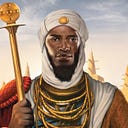Empires and Economics: The Insightful Parallels of Niall Ferguson and American Colonialism
In a world where history often repeats itself in the most intricate ways, “Empires and Economics: The Insightful Parallels of Niall Ferguson and American Colonialism” invites us to explore how past economic models shape our current financial landscapes.
When Niall Ferguson speaks of empires, he doesn’t just recount tales of conquest and dominion; he paints a picture of economic threads so deeply woven into the fabric of today’s world that they’re almost invisible. This isn’t your typical history lesson — it’s a revelation, a moment of seeing the matrix of modern economics through the lens of past empires.
Think of it like this: every morning, as you sip your coffee sourced from distant lands, you’re participating in a system set centuries ago. The global trade networks, the complex financial systems, even the way nations interact today — they’re echoes of the colonial era. Ferguson makes you realize you’re not just living in a world; you’re living in a world shaped by empires.
Now, imagine if every professional started their day with this awareness. A routine as simple as reading a piece of economic history while sipping that morning coffee could transform our understanding of business and economic strategies. It’s about looking at today’s corporate mergers, market expansions, and even technological advancements as parts of a larger, historical puzzle.
This perspective isn’t just enlightening; it’s electrifying. It turns the dry facts of economic history into a thrilling narrative that explains why some businesses thrive while others falter. Why some nations wield immense economic power and others struggle. It’s about understanding the ‘why’ behind the ‘what’, and Ferguson is a master at unveiling these truths.
But here’s the real kicker: this narrative, spun from the threads of history, isn’t just a story. It’s a roadmap. A guide to navigating the complex world of modern economics by understanding the successes and failures of the past. And that’s something worth sharing, discussing, and debating on platforms like Medium, where ideas transform into action.
